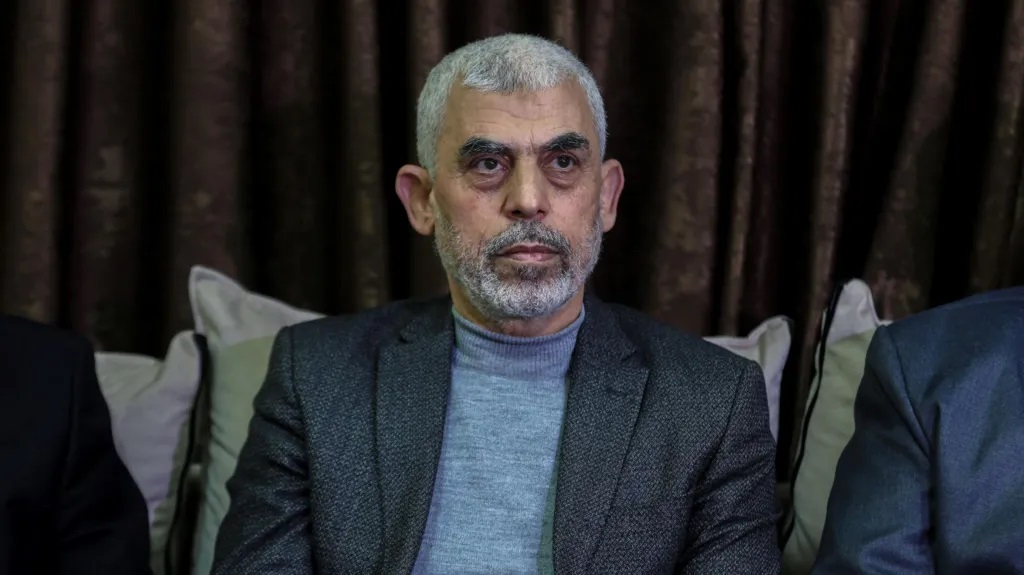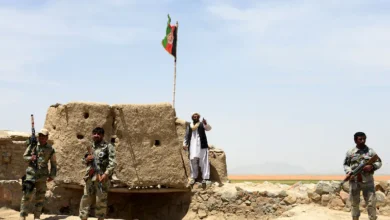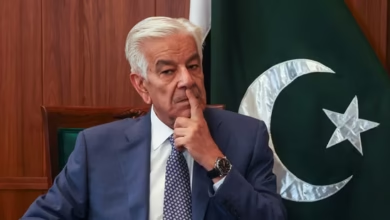Hamas Top Leader Yahya Sinwar Killed, Confirms Israel’s Foreign Minister

- It is perhaps Israel's most visible assassination of an enemy leader, following the deaths of Haniyeh in July and Hezbollah chief Hasan Nasrallah in September.
- It represents an opportunity to cool the situation in Israel and provide the Zionist nation with an exit from a conflict that has claimed thousands of lives
On Thursday (October 17), the Israel Defence Forces (IDF) announced the elimination of Hamas chief Yahya Sinwar in a ground operation in Rafah, southern Gaza.
Sinwar was one of three Hamas militants killed in the operation, and his identity was confirmed through a DNA test using a sample from his time in Israeli prison. The Israel Defence Forces (IDF) announced on Thursday evening (October 17) that it had killed Hamas chief Yahya Sinwar in a targeted ground operation in Rafah, southern Gaza.
Sinwar was one of three Hamas militants killed in the operation, and his identity was confirmed through a DNA test using a sample from his time in Israeli prison.
Yahya Sinwar was born in the Khan Younis refugee camp in south Gaza in 1962, when the region was still under Egyptian control. His parents were expelled from Ashkelon by Zionist forces in 1948, during the Palestinian Nakba (“catastrophe”), which saw widespread ethnic cleansing of Arabs as Israel was formed.
Sinwar was a member of the Muslim Brotherhood in the early 1980s and was arrested for protesting Israeli occupation while attending Islamic University in Gaza. He is credited with establishing Hamas’ Internal Security Force Al Majd, which is in charge of managing internal security issues, investigating — and allegedly brutally eliminating — suspected Israeli agents and Palestinian collaborators, and tracking down Israeli intelligence and security officers.
Sinwar is also credited with establishing the fearsome al-Qassam Brigades, Hamas’ military wing and the largest militia operating in Gaza before last year’s October 7 attacks.
Sinwar was arrested by Israel in 1988 for the murder of 12 “collaborating” Palestinians (which earned him the nickname ‘Butcher of Khan Younis’) as well as plotting the abduction and death of two Israeli soldiers.
He served 22 years in various Israeli prisons before being released in 2011 as part of a massive prisoner exchange agreement. He rejoined Hamas and rose through the ranks, eventually succeeding Ismail Haniyeh as the group’s leader in Gaza in 2017. He was appointed Hamas Politburo chief in August after Haniyeh was killed in a targeted missile strike in Iran the previous month.
Israel has long regarded Sinwar as the mastermind behind the October 7 attack, referring to him as “a dead man walking”.
The attack is now believed to have been planned as early as December 2022, when Sinwar promised Israel “endless rockets” and “a limitless flood of soldiers” at a rally in Gaza.
On October 7, Hamas fighters broke through Israeli defenses, killing 1,200 people and kidnapping more than 150 Israelis. This was the largest flare-up in Gaza in years, raising serious concerns about Israel’s defense capabilities.
The US, a key ally of Israel, charged Sinwar and other Hamas leaders last month with “financing, directing, and overseeing a decades-long campaign to murder American citizens and endanger the national security of the United States”.
Attorney-General Merrick Garland stated that on October 7, Hamas terrorists led by these defendants killed nearly 1200 people, including over 40 Americans, and kidnapped hundreds of civilians. Yahya Sinwar and other senior Hamas leaders were charged today with orchestrating the terrorist organization’s decades-long campaign of mass violence and terror, including on October 7.”
For Hamas, which has suffered greatly under the boot of Israel’s war machine, this would be a massive blow, potentially leading to an existential crisis.
At the same time, it offers a glimmer of hope for the end of hostilities in Palestine. Israel’s casus belli has always been to “wipe Hamas off the Earth”. Sinwar’s death represents a significant milestone toward this hazy goal. It is perhaps Israel’s most visible assassination of an enemy leader, following the deaths of Haniyeh in July and Hezbollah chief Hasan Nasrallah in September.
While it is unclear how Hamas and Palestinians will react to this loss, for the US and other Israel allies, it represents an opportunity to cool the situation in Israel and provide the Zionist nation with an exit from a conflict that has claimed thousands of lives, cost billions of dollars, and left the world in a protracted political and moral crisis.
“With progress toward a ceasefire-for-hostages deal to pause the war stubbornly stuck for months, senior [US] administration officials had hung onto hope that Sinwar might one day be taken out — opening doors in the talks that simply would not be available otherwise” .
However, there is no guarantee that this will occur. Tensions may even rise in the near future, depending on what Israel does next.







Facebook Comments